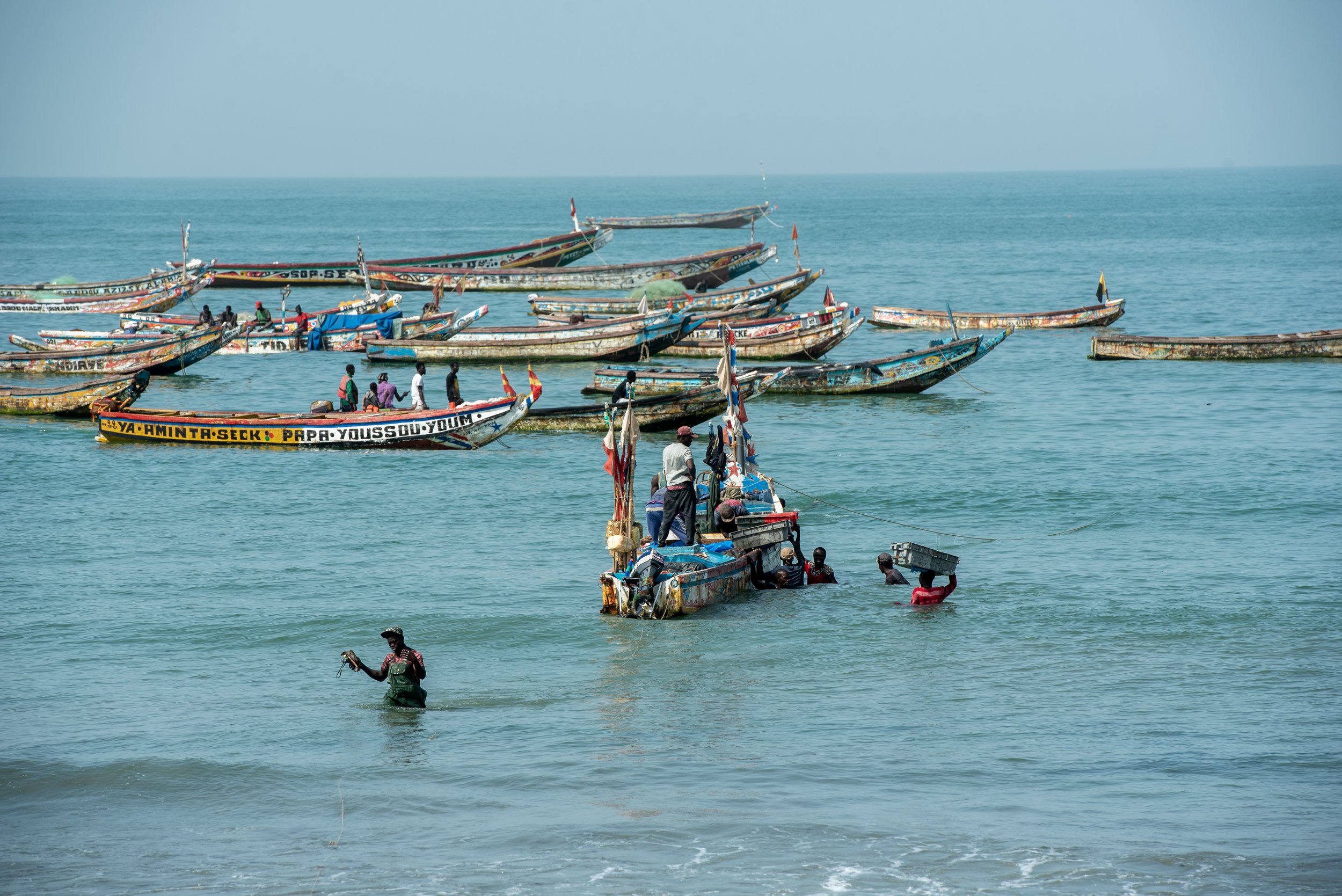As Senegal celebrates the handover of power at the Presidential Palace on 3 April 2024, many are questioning the impact of the policies of the young President Bassirou Diomaye on small-scale fisheries, a sector that plays a key role in the country's economy.
In a position paper (see below, click here for an English version), the Association pour la promotion et responsabilisation des acteurs de la pêche artisanale maritime (APRAPAM, Association for the promotion and empowerment of small-scale maritime fishing stakeholders) comments on the newly installed government's election programme for fisheries and aquaculture, in particular the urgent need for management plans for certain key fisheries, greater transparency in the allocation of industrial fishing licences, a inshore exclusion zone for artisanal fisheries and the development of a small-scale tuna fishery.
In this position paper, APRAPAM notes that "fishing for small pelagics is a source of employment and income for local people, particularly women processors, who market the fish throughout the region", and expresses its incomprehension at the fact that the government wants to encourage "the production of fish feed at local level by setting up industrial units", despite the fact that the fish resources used in the production of fish oil and fish meal - small pelagics - are heavily overexploited. They insist: "We need a coherent approach to reduce the pressure on our resources and reserve them for human consumption".
APRAPAM also notes that since 2016 Senegal has been committed to joining the Fisheries Transparency Initiative (FiTI), but that it "should walk the talk, in particular by regularly publishing the list of vessels authorised to fish" in its waters. "Fish belong to all Senegalese, and it is only fair that all our citizens should know which companies, from which origin, have used our flag to fish in Senegal and sometimes even throughout the region". They propose that the Commission for the Allocation of Licences be changed from an advisory to a deliberative body, with a higher proportion of representatives of stakeholders from the fishing sector.
Although according to the Maritime Fishing Code (2015), Senegal can reserve "certain zones for exploitation by artisanal fishers", it has never established a zone reserved for artisanal fisheries. Diomaye's programme proposes to establish "the 12-nautical-mile (12-mile) zone for the exclusive exercise of artisanal fisheries. This major reform aims to protect small-scale fishing and small-scale professionals from the incursion of industrial fishing boats". APRAPAM welcomes the reform and stresses the importance of better defining and supporting participatory surveillance, which "has been lauded for decades" but "generally lacks administrative, logistical and financial support".
Finally, APRAPAM questions the government's proposal to suspend the fisheries agreement with the European Union. They explain how tuna quotas are allocated at regional level, and that the tuna that migrates through Senegalese waters "does not belong to Senegal": "If there were no agreement with Senegal, European boats would continue to fish for this tuna outside Senegalese waters, when they are swimming on the high seas or in the EEZs of neighbouring countries with which the EU has an agreement, and Senegal would receive no financial compensation". For APRAPAM, the development of a tuna fleet with the re-flagging of vessels of Asian origin does not offer reassurance to those involved in the sector. They conclude: "Wouldn't it be preferable for Senegal to concentrate on developing sustainable small-scale tuna fishing in its waters, rather than leaving tuna fishing entirely in the hands of foreign, European or Asian operators?"
Banner photo: The beach and artisanal fishing landing site in Kafountine (Casamance, Senegal), by Agence Mediaprod.




With Senegal’s yellow card, fisheries agreement negotiations between the EU and Senegal are at a standstill. Meanwhile, the EU will negotiate the renewal of its SFPA with The Gambia, whose waters are bordered on both sides by Senegal’s. How would access to the Gambian waters be used by EU fleets, at a time when they may be barred from Senegal waters?